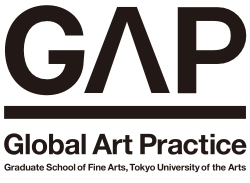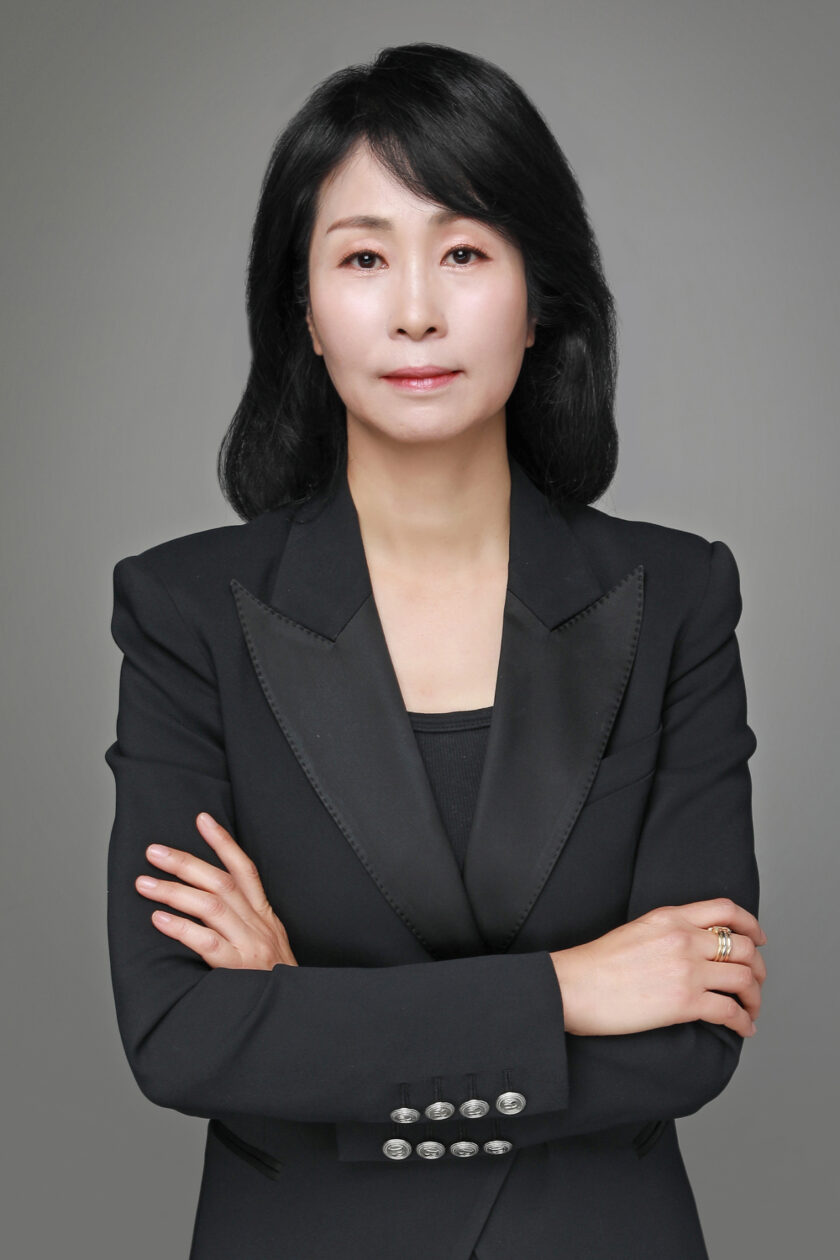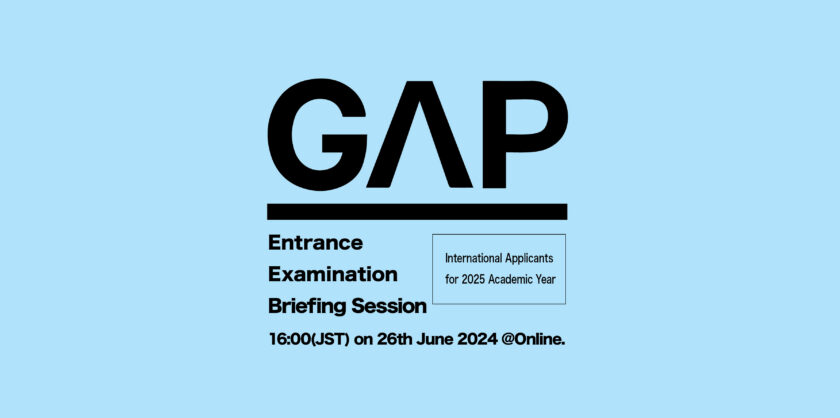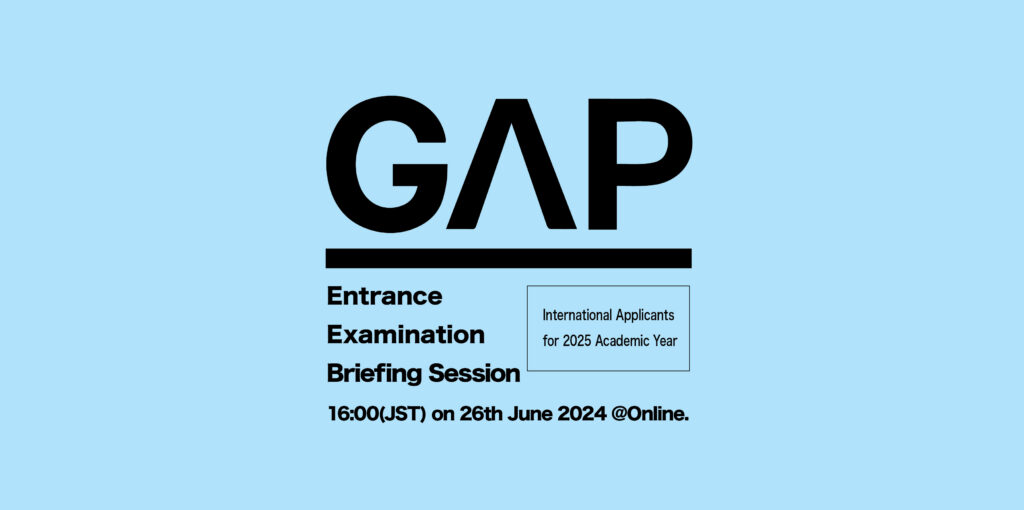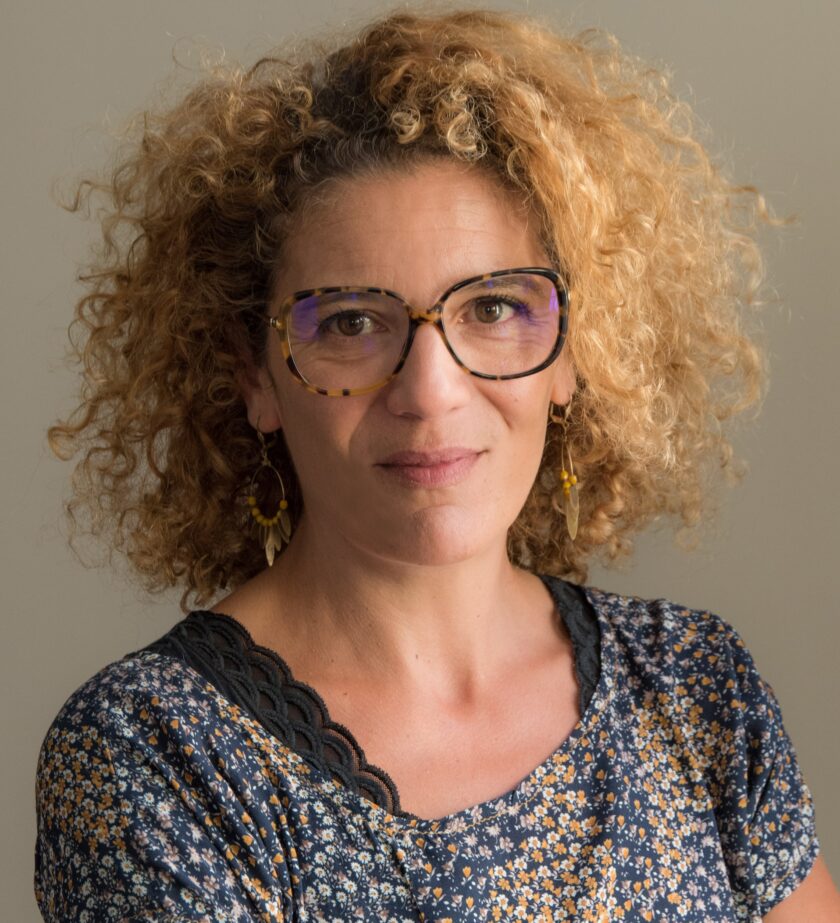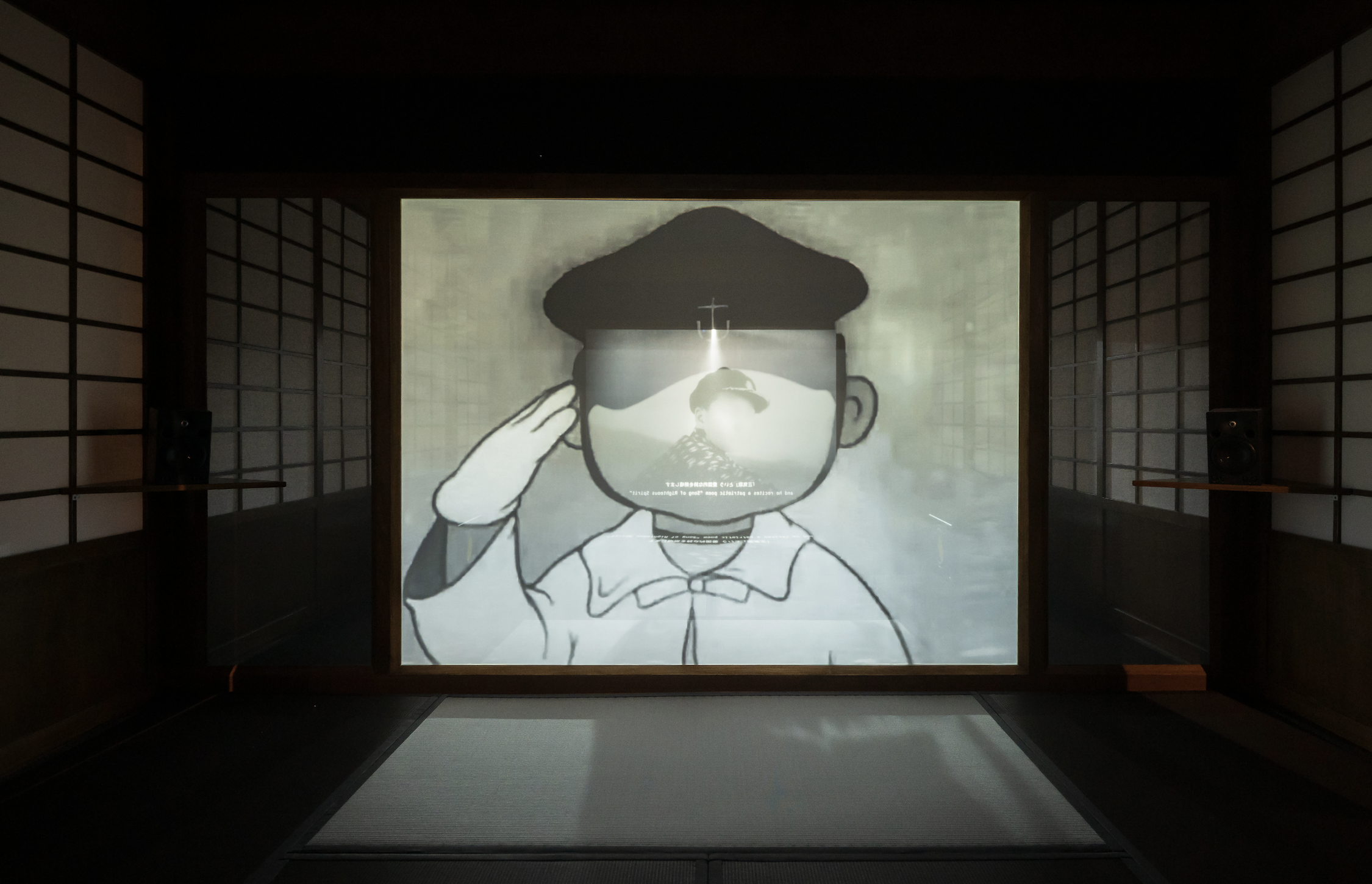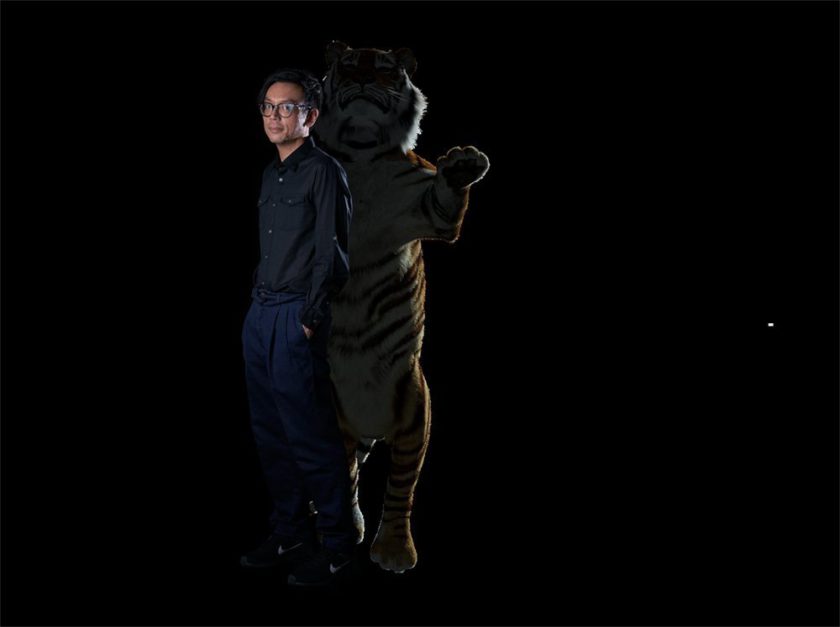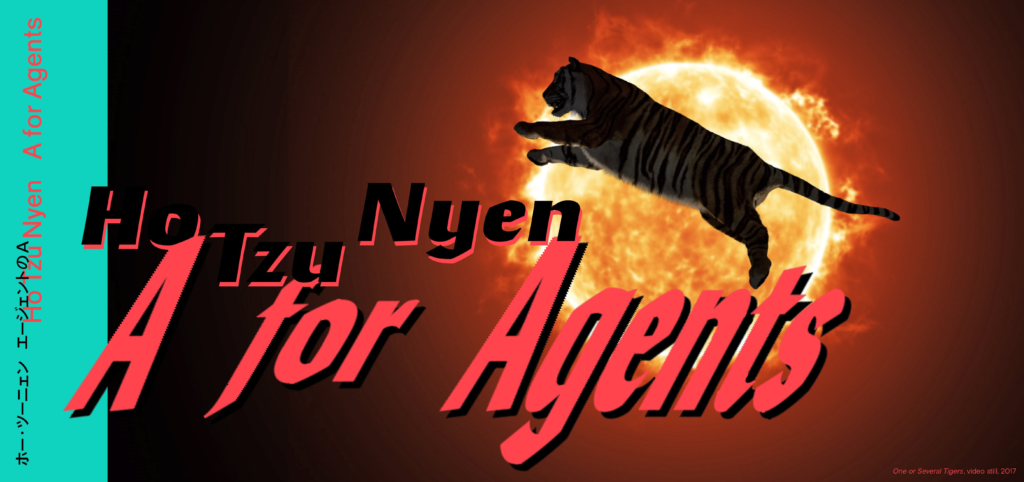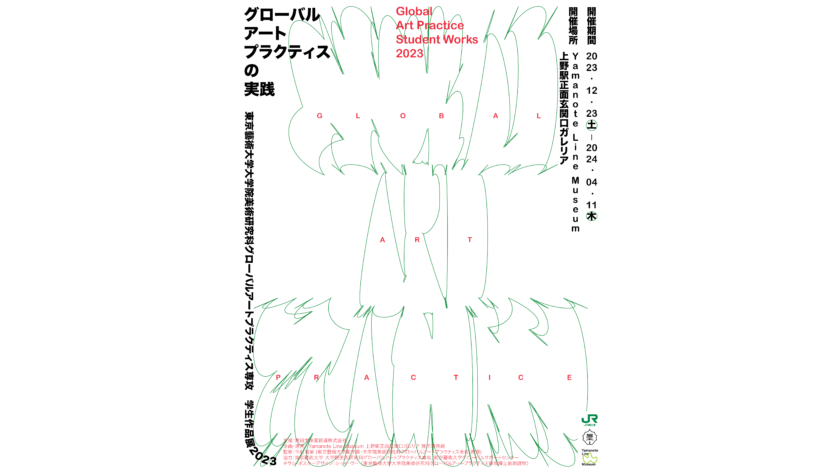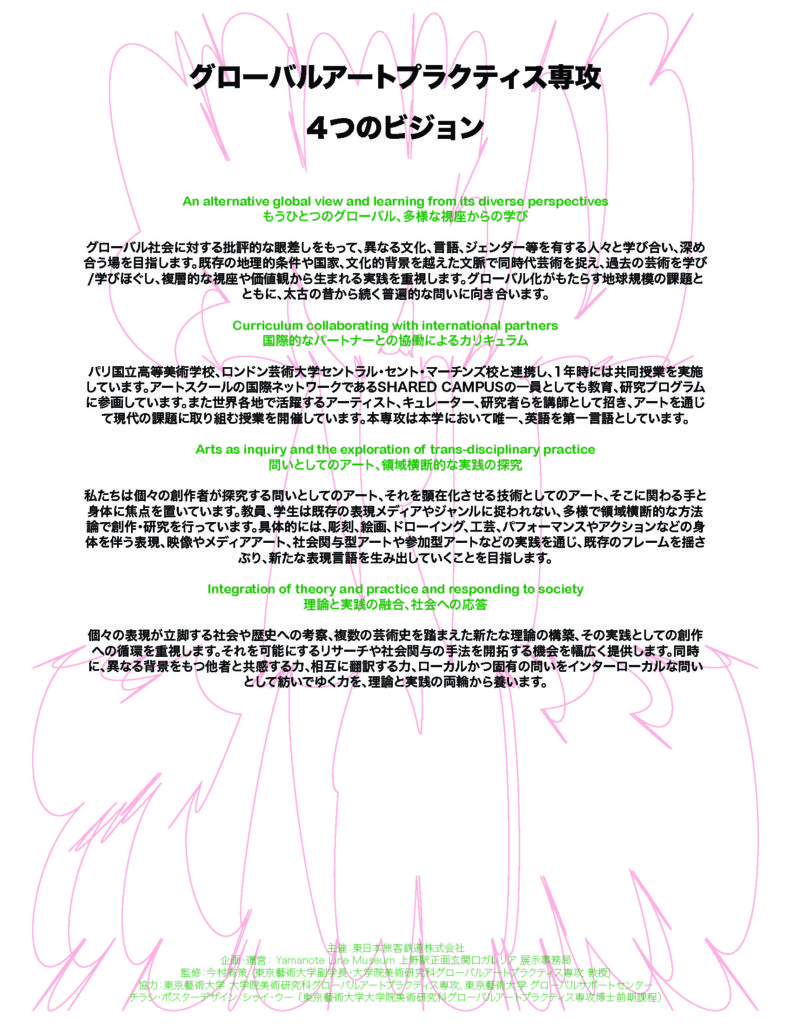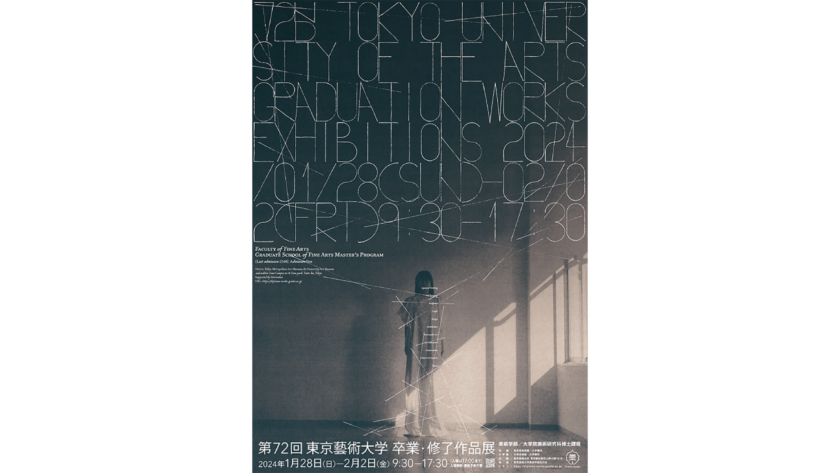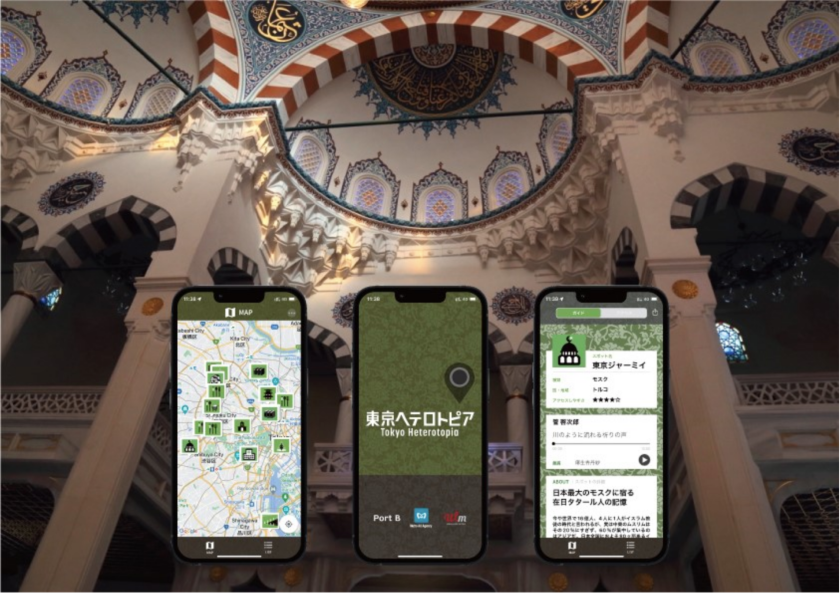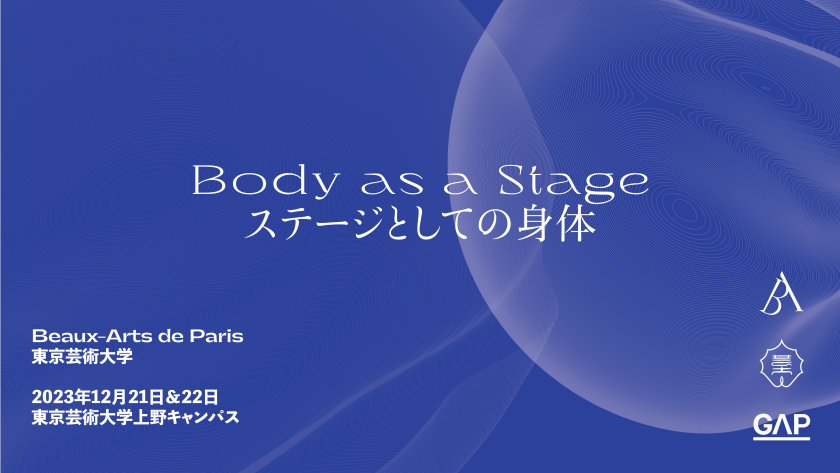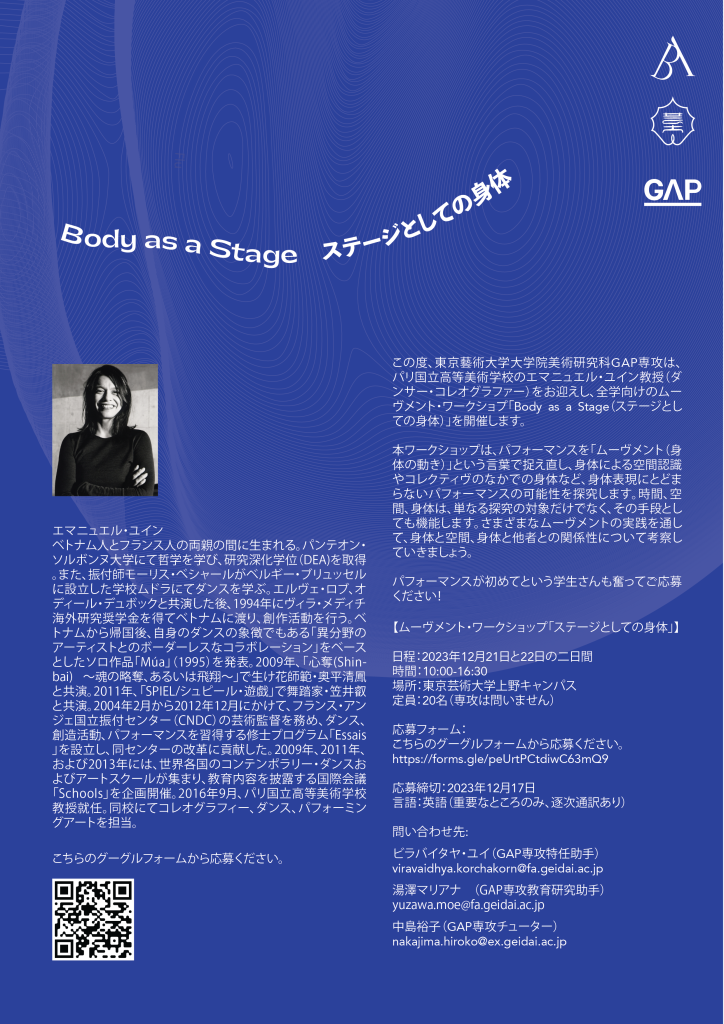ゲスト:チョン・ヨンシム氏(Yeon Shim CHUNG)
弘益大学教授、DMZ Art & Peace Platform 2021ディレクター
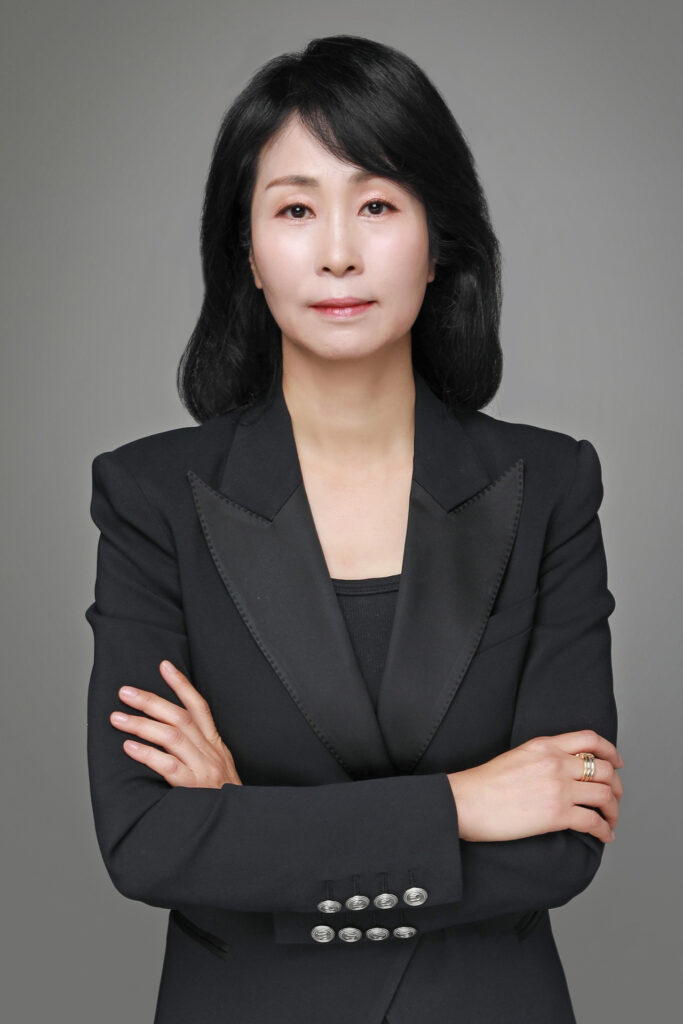
“国境はそこにあり、障壁として機能しているが、DMZにおける芸術的想像力と平和への願いは、鳥、風、水、草のように常にボーダーレスである。国境のないDMZ。”
“The border is there, acting as a barrier, yet the artistic imagination and desire for peace in the DMZ will always be as borderless as birds, wind, water, and grass. Borderless DMZ. “
– チョン・ヨンシム Yeon Shim CHUNG
世界各地の紛争/戦争、それがもたらす人々の分断と悲劇を身近に感じない日はない現在。アートを学ぶ私たちが、この状況にどのように関われるのか、対処の方法は違っても、個々人それぞれが何らかの考えを抱えて日々を過ごしているのではないでしょうか。
日本に最も近い紛争の継続的現場、それは朝鮮半島の南北軍事境界線DMZです。隣の国・韓国では、継続する政治的闘争を踏まえつつも、アートを通して現在を視、過去と未来を考える場として、DMZをプラットフォームとする文化的研究的アプローチを展開しています。
GAPでは、DMZでのアートプロジェクト「DMZ Art & Peace Platform 2021」のディレクター、チョン・ヨンシム氏の来日を捉え、DMZを現場とするアートによるアプローチについて、緊急トークを開催します。
チョン・ヨンシム氏がキュレーティングしたDMZ Art & Peace Platformは、DMZとその周辺の5カ所を会場とし、ナムジュン・パイクや坂茂、オラファー・エリアソンとセバスティアン・ベーマンによるStudio Other Spaceなど、国際的に高く評価される33人のアーティストが参加しました。DMZの過去、現在、未来の物語にスポットを当て、DMZを新たな「コンタクトゾーン」、つまり国境のない平和地帯へと変貌させるプロジェクトです。参加者は、南と北の国境に住む普通の人々や彼らの日常生活、ミレニアル世代やZ世代、朝鮮戦争を経験していない戦後世代に代表される避難民や戦争イメージの「先送りされた記憶」、精神を癒すために絶滅危惧種の名前を呼び起こすこと、パンデミックや気候危機の中で環境とテクノロジーの共存について考えるなど、多様な題材を取り上げ、アートをプラットフォームとして幅広い専門家が結集しました。
チョン・ヨンシム氏は「国境はそこにあり、障壁として機能しているが、DMZにおける芸術的想像力と平和への願いは、鳥、風、水、草のように常にボーダーレスである。国境のないDMZ。」と語っています。
紛争の時代、アートの力を未来に向けて考える場として、ぜひ多くの方々の参加をお待ちしています。
In today’s world, there is not a day that goes by without being reminded of the conflicts and wars happening around the globe, and the division and tragedies they bring to people. As people studying art, how can we engage with this situation? Even though our methods may differ, each of us is likely spending our days carrying some thoughts on how to cope with this.
The most continuous conflict close to Japan is at the DMZ (Demilitarized Zone) on the Korean Peninsula. In South Korea, our neighboring country, there is a cultural and research-oriented approach using the DMZ as a platform to view the present through art, and reflect on the past and future, while considering ongoing political struggles.
In the GAP, we are seizing the opportunity of the visit by Ph.D. Chung Yeon shim, director of the DMZ art project “DMZ Art & Peace Platform 2021,” to hold an urgent talk on the approach to art at the DMZ.
The DMZ Art & Peace Platform, curated by Dr. Chung, used DMZ and its surrounding 5 locations as venues and featured 33 internationally acclaimed artists including Nam June Paik, Shigeru Ban, and the Studio Other Space by Olafur Eliasson and Sebastian Behmann. This project focused on the past, present, and future stories of the DMZ, transforming it into a new “contact zone,” a borderless peace area. Participants included a wide range of experts using art as a platform, covering diverse themes such as the everyday lives of ordinary people living on the border between North and South Korea, the “deferred memories” of refugees and post-war generations who did not experience the Korean War, invoking the names of endangered species to heal the spirit, and considering the coexistence of the environment and technology amid the pandemic and climate crisis.
Dr. Chung says, “The border is there, acting as a barrier, yet the artistic imagination and desire for peace in the DMZ will always be as borderless as birds, wind, water, and grass. Borderless DMZ. “
In this era of conflict, we invite many to participate and consider the power of art towards the future.
ゲスト:チョン・ヨンシム氏(Yeon Shim CHUNG)
弘益大学教授、DMZ Art & Peace Platform 2021ディレクター
韓国ソウルの弘益大学美術史・理論学科教授。アーティスティック・ディレクターとして、韓国非武装地帯で2021年DMZアート&ピース・プラットフォームをキュレーション。理論とキュレーティング、執筆と多方面に活発な活動をしている。ニューヨーク大学インスティテュート・オブ・ファイン・アーツで美術史の博士号を取得。研究対象は、西洋と東アジアの近現代の芸術と文化。ニューヨークのファッション工科大学で助教授を務めた後、1999年にニューヨークのグッゲンハイム美術館で開催された「ナム・ジュン・パイクの世界」展のリサーチャーを務める。フルブライトフェローとして2018年から2019年にかけてニューヨーク大学のIFAで客員研究教授を務めた。また2000年以降、ニューヨークとソウルで、2018年光州ビエンナーレ版の「想像された国境」展「Faultlines」など、いくつかの画期的な展覧会を共同キュレーションしている。
執筆活動としては、2013年、戦後韓国美術における単色画の主要な提唱者である李逸(イ・イル)の評論集を編纂した(Mijinsa、2013年、英訳はLes Presses du réelより出版)。また、M+ Matters(香港)で単色画に関する複数の記事を執筆したほか、ナム・ジュン・パイク、パク・ヒョンギ、韓国の実験的前衛芸術家に関するモノグラフを執筆。アンソロジー『Visualizing Beauty(美の視覚化)』では本の章を執筆:また、『Installation Art in Contemporary Space』(A & C、2014年)と『Korean Installation Art』(2018年)という2冊の韓国語のモノグラフがある。1953年以降の韓国美術を執筆、共同編集:Collision, Innovation, Interaction』(Phaidon London、2020年)を執筆している。
Professor of Art History and Theory at Hongik University in Seoul, South Korea. She received her Ph.D. in art history from the Institute of Fine Arts, New York University. Dr Chung’s research interests encompass both modern and contemporary Western and East Asian art and culture. Before receiving tenure at Hongik, she was Assistant Professor at the Fashion Institute of Technology in New York City and a researcher for the exhibition The World of Nam June Paik at the Guggenheim Museum, New York in 1999. She has also co-curated several landmark exhibitions in New York and in Seoul since 2000, including Faultlines, an exhibition of “Imagined Border,” the 2018 Gwangju Biennale edition. In 2013, Chung compiled a Critical Anthology of Lee Yil, a major proponent of Dansaekhwa in post-war Korean art (Mijinsa, 2013; the English translation was published by Les Presses du réel). She also authored several articles on Dansaekhwa at M+ Matters (Hong Kong), and monographs on Nam June Paik, Park Hyun-Ki, and Korean experimental avant-garde artists. She published a book chapter in the anthology Visualizing Beauty: Gender and Ideology in Modern East Asia (Hong Kong University Press, 2012); and has two monographs in Korean, entitled Installation Art in Contemporary Space (A & C, 2014) and Korean Installation Art (2018). She authored and co-edited Korean Art from 1953: Collision, Innovation, Interaction (Phaidon London, 2020). As an artistic director she curated the 2021 DMZ Art & Peace Platform on the border of the DMZ. She was a visiting research professor at IFA, NYU in 2018-2019 as a Fulbright Fellow.
DMZ Art & Peace Platform:
WEBSITE of DMZ Art & Peace Platform
DMZ:
朝鮮半島の南北軍事境界線DMZは、1953年7月27日の朝鮮戦争休戦協定により発効した休戦ラインです。朝鮮戦争は1950年6月25日に勃発したため、韓国では日付の発音をとって「6・25(ユギオ)」と呼ばれます。東西冷戦の文脈の中で、当時のアメリカとソビエト連邦が朝鮮半島の支配をかけ深く関与し、世界的な地政学的闘争が朝鮮半島で顕在化した紛争といえます。その発生の遠因には日本の朝鮮半島植民地支配もあった、日本にとって地理的に最も身近な紛争と分断の現場です。朝鮮戦争は依然として休戦状態であり、戦争は終結しないまま70年以上が経ちました。一つの民族が分断と紛争に至った経緯は、当事者だけでなく世界の政治的闘争がもたらした結果であることは、今現在ニュースに頻出する紛争/戦争でも似た構造を見出すことができるでしょう。
What is DMZ?
The DMZ (DeMilitarized Zone) on the Korean Peninsula is the Military Demarcation Line established by the Korean War Armistice Agreement on July 27, 1953. The Korean War began on June 25, 1950, and in South Korea, it is called “육이오 (pronounced “yook-ee-oh”, or six-two-five)” based on the pronunciation of the date. Within the context of the East-West Cold War, the United States and the Soviet Union deeply engaged in the struggle for control over the Korean Peninsula, making it a prominent site of global geopolitical conflict. The distant cause of its occurrence includes Japan’s colonial rule over the Korean Peninsula, marking it as the closest site of conflict and division to Japan. The Korean War remains in a state of armistice, having lasted for more than 70 years without a formal end to the war. The process by which one ethnic group has come to division and conflict is not only the outcome of actions by the parties directly involved but also a result of global political struggles, a structure that can be similarly observed in conflicts and wars frequently reported in the news today.
テーマ:南北軍事境界線 ― 自然・挑戦・そしてアート/境界を超えて
日時:2024年6月28日(金)18:00-20:00
会場: 東京藝術大学上野キャンパス 美術学部中央棟第一講義室(以下の地図の7番)https://www.geidai.ac.jp/access/ueno
*オンライン配信の予定はございません。
対象:本学の学生・教職員、学外一般 (定員150名)
*GAPの修士1年は必修授業(GAP Unit Program)の一環として開催するので必ず履修すること。
使用言語:英語・日本語の逐次通訳つき(通訳者:ホウグ カイル)
参加無料・予約不要(先着順)
企画・司会:李美那(東京藝術大学 グローバルアートプラクティスGAP教授)
主催:東京藝術大学大学院美術研究科グローバルアートプラクティス専攻(GAP)
問い合わせ先:美術研究科 グローバルアートプラクティス専攻
メール:gapstaffs@ml.geidai.ac.jp
————————————-
Theme: Beyond Barriers: Nature, Challenges, and Art in the DMZ
Date: June 28th, 2024 (Friday) 18:00-20:00
Venue: Lecture Room 1, Central Building, Faculty of Fine Arts, Ueno Campus, Tokyo University of the Arts (No. 7 on the map below)
https://www.geidai.ac.jp/access/ueno
*There will be no online streaming of the lecture.
Eligibility: TUAT students, faculty, staff, and the general public (first-come, first-served; capacity of 150)
*GAP Unit Program (must be taken as it is part of the required coursework) for the first year of the Master’s degree in GAP.
Language: Japanese and English with consecutive interpretation (interpreter: Kyle Hogue)
Admission free/ Reservation not required (in order of arrival)
Credit:
Planned and hosted by Professor Lee Mina (GAP)
Organized by Global Art Practice (GAP), Tokyo University of the Arts
Contact:
Graduate School of Art, Department of Global Art Practice
Email: gapstaffs@ml.geidai.ac.jp
